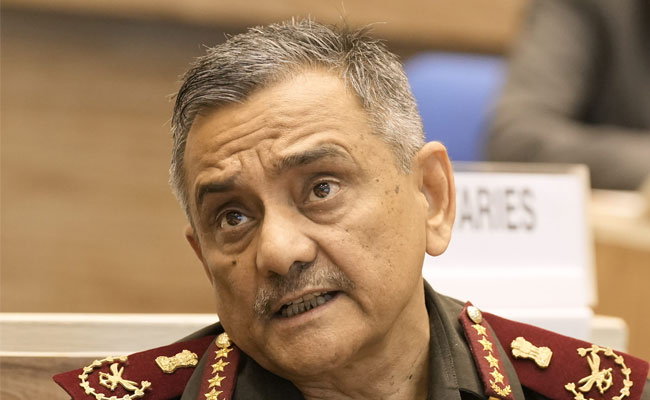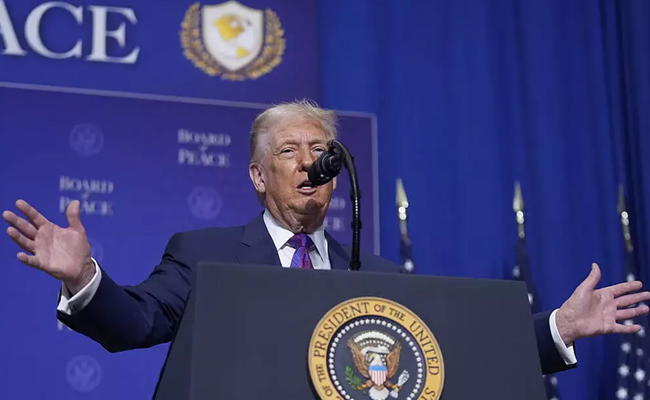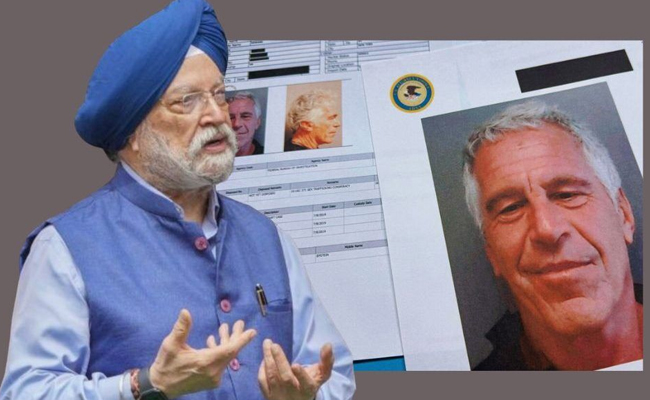Bengaluru (PTI): Chief of Defence Staff General Anil Chauhan on Saturday said the ongoing geo-political, economic and technological changes are creating uncertainty in the world, and an environment that is volatile, complex and ambiguous.
He said nations are preparing themselves for this uncertain kind of future and it is reflective in most of their national security strategies and defence spending.
The CDS delivered the 14th Air Chief Marshal LM Katre Memorial Lecture organised by Air Force Association (Karnataka Branch), in association with Hindustan Aeronautics Limited (HAL) here.
"If you have a look at national security strategies, countries like -- Japan, France, Germany, (the) UK, Poland, South Korea, Bangladesh and many others have revived their national security strategies. They actually revived at the time of the Ukraine conflict, but now bigger change is happening in the Middle East," Chauhan said.
"If you look at defence spending of most of these nations they have expanded, almost doubled it up," he pointed out.
Whether the defence industry globally is ready to meet the demand of these nations, that remains to be seen, the CDS said.
"This is where I say, lies a bit of opportunity for us. The environment which is shaping creates an opportunity for the defence industry for the future."
Pointing to the change in the nature and character of warfare, which is technology driven, with domains like -- space, cyber-- he said, "we have to be prepared for it."
"The change which is happening is inevitable and India, like others, is at the major crossroads of history and actions that we take today will define India's status in the next 25 years," Chauhan said.
He also said, "when we look at the military preparedness of the nation, we are looking at a strong army, navy and air force , also space and cyberspace."
Averring that currently the global geo-political environment is in a state of flux, the CDS said, " in fact the world will be transiting between two orders, the old order is withering away, and the shapes and contours of the new world order are yet to stabilise. To predict how it will be in the times to come will be rather difficult."
Explaining about the current geo-political environment, he said that he feels that the geopolitical importance of Russia will go down in times to come, in spite of it being a major nuclear power.
China presently occupies an important place in the geo-economic world order, it was the fastest growing economy, and its economic lift is now visible in the political domain and diplomatic domain also -- with them brokering a rapprochement between Saudi and Iran, Chauhan said.
"It is also reflected in their military power, the greenshoots of this is already visible in the South China sea and in our northern borders. So, we will see a more assertive China in the times to come."
"Of course, there will be convergence of interests between Russians and the Chinese and some other countries like North Korea and Iran may also join this bandwagon in the times to come. Chinese and Russians have already declared that their friendship has no limits," he pointed out.
Indo-Pacific is fast emerging, the CDS said, it's an area of future contestation. "in fact if you see national security strategies of most nations, they will talk about Indo-Pacific," he said.
Suggesting that there will be emergence of a multipolar world order, he said we can witness a polycentric and polyconic competition and cooperation.
"How this will pan out -- there will be no permanent friends and no permanent enemies, and this relationship between friends and enemies of nations will evolve faster than ever before. Partnership and new alliances will emerge amid this changing security environment. Expansion of NATO, Quad etc are only indications of this."
Chauhan further said India may emerge as the leader of the global south, and the successful conduct of the G 20 presidency is actually an indication in that direction.
Pointing at uncertainties due to the Israel-Hamas conflict, Russia-Ukraine war and conflicts in Middle-East, Libya, Syria and others, he said, "what people are saying is the world order isn't actually the world order-- it is actually the world disorder, which is presently there."
He also spoke about geo-economic disruptions and geo-technological disruptions that are taking place.
On the military reforms that are taking place, which started with the appointment of CDS, Chauhan said creation of theatre commands is fundamental and a major change that is going to happen in the time to come, whenever we are prepared for this.
"We had been doing things in a particular way from independence till now, where three service chiefs are responsible to meet the challenges in their particular domain. This is going to fundamentally change now and the responsibilities will rest theater commanders with theatre command coming into force. This is a major change that is going to happen in the times to come," he said.
With theaterisation there will also be jointness and integration simultaneously, he added.
Let the Truth be known. If you read VB and like VB, please be a VB Supporter and Help us deliver the Truth to one and all.
New Delhi/Amaravati (PTI): Andhra Pradesh Chief Minister N Chandrababu Naidu on Friday said the state is taking steps to transform itself into a knowledge and creator economy hub with a strong focus on artificial intelligence and quantum technology.
He noted that Andhra Pradesh has abundant tech-driven youth and the government is formulating plans to train them in futuristic technologies with support from global technology firms.
"Our goal is to transform Andhra Pradesh into a knowledge hub by focusing on AI, quantum computing, data centres, drone cities and space cities. The youth will remain our biggest asset over the next 25 years, and we seek global partnerships to scale up the creator economy," said Naidu during his interactions at the India AI Impact Summit 2026 in Delhi.
Naidu, who participated in the summit in the national capital, also held meetings with several global technology leaders and industrialists to explore collaborations in artificial intelligence, clean energy and innovation ecosystems.
He met Adobe CEO Shantanu Narayen, Autodesk AI Head Mike Haley, Aramco India Director Abdul Rehman AiThukair, LEGO Education Vice President Tom Hall, Aadhaar Founder and CTO Srikanth Nadhamuni, Khosla Ventures Managing Partner Vinod Khosla and others at the AP Pavilion.
The chief minister also held discussions with Saudi Aramco representatives on clean energy projects, including solar initiatives, and invited the company to expand operations in Andhra Pradesh, stating that the state is highly suitable for green energy production.
He sought support from NVIDIA Vice President Callista Redmond for establishing AI Living Labs and proposed partnerships through the Ratan Tata Innovation Hub to promote youth innovation, including collaborations with IIT Tirupati and Indian Institute of Science Education and Research (IISER) Tirupati under the Andhra Pradesh Future Innovation and Research for Science and Technology (AP FIRST) initiative.
Naidu urged Autodesk leadership to support the development of Global Capability Centres in design engineering and requested the establishment of an Innovation Academy in Amaravati aligned with quantum technology, besides proposing AI and robotics learning labs in partnership with LEGO Education.
He also discussed AI-driven smart governance solutions with Quantela Inc Chairman Sridhar Gadhi, while World Bank Group Digital AI Regional Director Mahesh Uttamchandani met Naidu on the sidelines of the summit.
Following the meetings, Naidu visited various exhibition stalls at the summit, including those of NVIDIA, Tata, Intel and Microsoft, and reviewed AI applications across agriculture, healthcare and industry.





